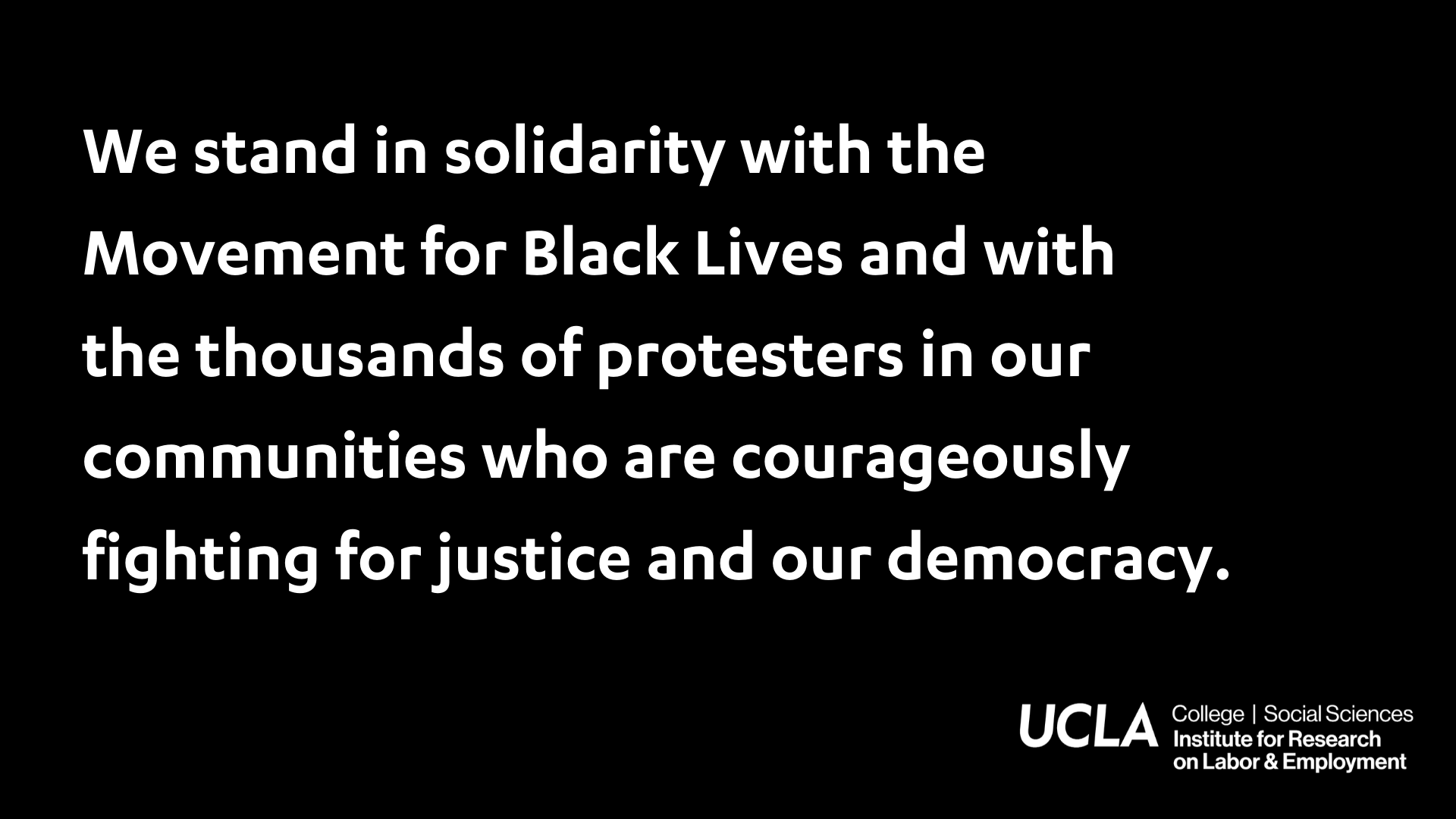In Solidarity with The Movement for Black Lives

Dear IRLE Community,
These are unprecedented times and just when the onslaught of the pandemic was seemingly flattening and coming under control, the events of George Floyd’s murder in the hands of the Minneapolis Police Department adds another layer of angst, anxiousness, helplessness, and anger. We write as the leaders of the Institute for Research on Labor and Employment (IRLE) to express our shared outrage and frustration, and to redouble our commitment to racial justice in the research, teaching, and administration of the IRLE. We stand in solidarity with the Movement for Black Lives and with the thousands of protesters in our communities who are courageously fighting for justice and our democracy.
The pandemic and its economic impact has exposed the deep inequalities that are especially damaging for workers of color and immigrants. They combat the virus on at least two fronts; as essential workers and as overexposed and vulnerable residents living in poverty, on the edge of it, or paycheck to paycheck. George Floyd’s murder lays bare this inequality and the violence associated with an economy that retains the vestiges of plantation capitalism. The disproportionate police response to protesters, and the threat of federal officials to “dominate the battlespace” of American cities signal a new and troubling phase in our nation’s deep-seated history with police violence. But alongside these anti-democratic actions, we see compassion. We see mutual assistance. We see solidarity and many acts of nonviolence and peaceful protest.
These are difficult times for all of us and we encourage you to reflect, to undertake acts of kindness, and to promote a society and workplace that is fair, kind, and peaceful. We also encourage you to channel your energy in ways that elevate your own wellness and that allow you to contribute to a better society.
For over seventy years, the IRLE has identified the shortcomings of our economic system, and helped to craft actionable policies that support the power of working people in California and beyond. As we face an uncertain future, we recommit to that mission, and to deepening our efforts to enact social justice at work, in our communities, our unions, and our political systems.
…
Abel Valenzuela Jr. is director of the UCLA Institute for Research on Labor and Employment, Special Advisor to the Chancellor on Immigration Policy, and professor of Chicano studies and urban planning. He is the author of several research articles, books and reports on demography and population studies, immigrant labor markets, immigrant settlements and urban economies. His work has helped frame numerous national public policy narratives concerning immigrants in America’s workforce.
Tobias Higbie teaches classes on U.S. History, labor and social movement history, labor studies, and digital humanities/history. He is Associate Director of the Institute for Research on Labor & Employment and faculty chair of the Labor Studies undergraduate program. Higbie’s most recent book, Labor’s Mind: a History of Working-Class Intellectual Life (University of Illinois Press, 2019) is a social and cultural history of working-class readers and workers’ education in the U.S. during the early 20th century.
